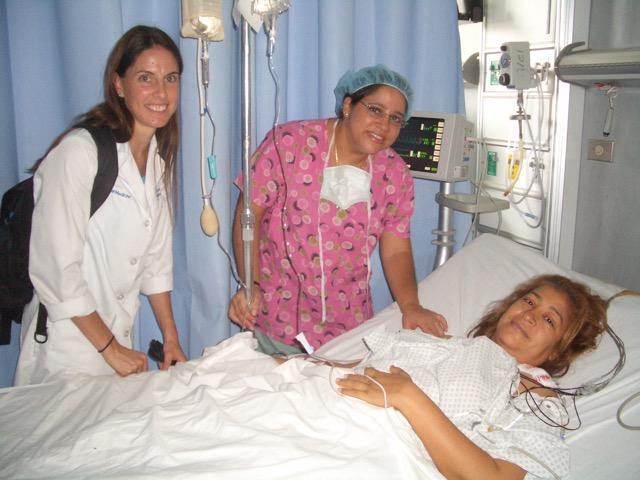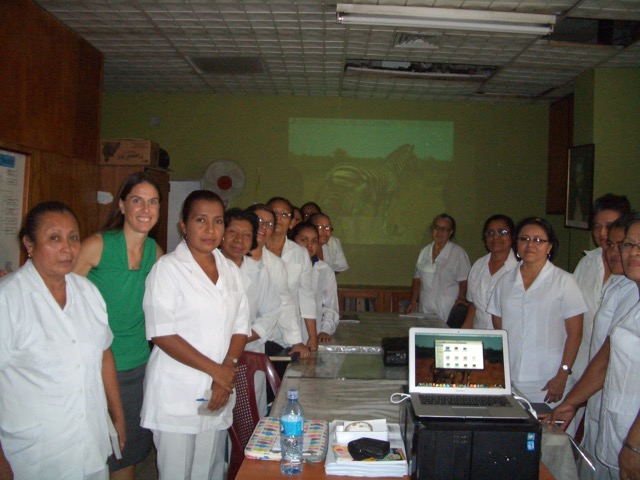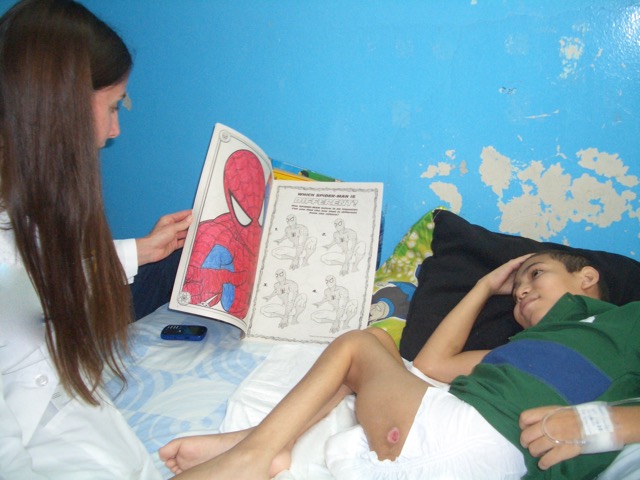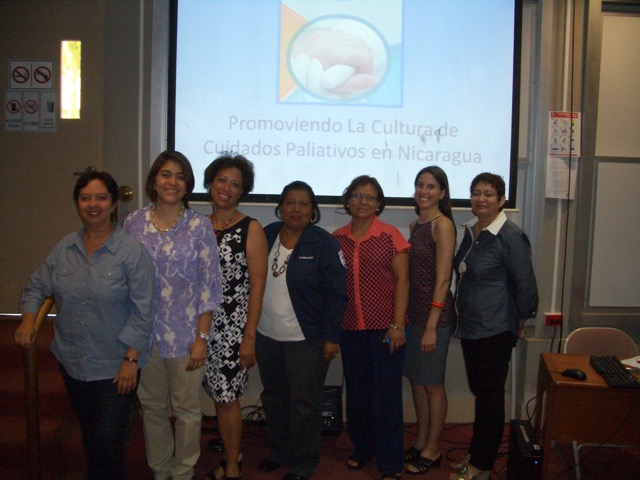
Nicaragua, a country of more than six million people, has just five palliative care specialists to its name. Megan Jordan, MD, hopes to change that. In the two years she has been at the division of General Internal Medicine, Jordan has been visiting the country every six months to broaden education, help train health care providers, and even explain the concept of palliative care.
In this week’s Faculty Spotlight, Jordan talks about working in both Duke and Nicaragua. She also discusses the need for palliative care within Nicaragua, and how the country is working to improve care.
What are your responsibilities within the division? What does a typical day for you look like?
I perform both adult and pediatric palliative care, so my work varies a lot depending on what day you find me. I work on adult and pediatric palliative care consults at Duke and Duke Regional Hospital, as well as round at Duke Hospice and the medical oncology 9300 unit.
In addition to providing palliative care in the United States, you also have an interest in palliative care in Latin America. How did you get involved in this field?
My interest came out of working with patients with late diagnoses and dealing with end-of-life issues both in US and abroad. Many patients in developing world have late stage disease at the time of diagnosis which increases their symptom burden and need for palliative care. There is a huge need for palliative care in the developing world and given my fluency in Spanish I had strong desire to specifically work in Latin America. I chose to work in Nicaragua because it has limited resources for palliative care.
I made my first trip to Nicaragua in 2013, during my Hospice and Palliative Medicine fellowship at the University of Michigan. I made connections with providers in Nicaragua practicing in palliative care through the International Association of Hospice and Palliative Care (IAHPC). This trip grew into an ongoing series of visits every six months.
Can you tell me more about this work?
I made initial visit in 2013 to perform a needs assessment with a variety of health-care practitioners--physicians, nurses, psychologists, and nutritionist. We looked at major areas such as education, medication availability and services provided in palliative care. Based on results of that assessment, a work group was formed called the Palliative Care Network of Nicaragua. I continue to work in collaboration with this network to help develop palliative care in the country. I visit Nicaragua twice a year and work with member of the Palliative Care Network assisting with patient care consultations as well as teaching and educating health care professionals about palliative care in various hospitals in Managua and Leon.

We received a grant from Rotary International to fund education about palliative care. I just got back earlier this week from a visit to Nicaragua in which we provided educational seminars about the basics of palliative care for nurses, medical and nursing students, physicians, as well as community volunteers. We also worked on an education program with another NGO in training “health promoters”, who are community volunteers that identify health care needs within their neighborhoods. These individuals identify patients who are in need of anything from maternal health care to vaccines to diabetes management. We’re training these health promoters how to identify people who need palliative care, how to put those people in contact with physicians, and even how to provide psycho-social and spiritual support.
How does palliative care differ from Nicaragua from palliative care in the United States?
Nicaragua has five palliative care specialists for a whole country of 6 million people. To put that in perspective, there are three times that many palliative care specialists on faculty here at Duke. All of these specialists in Nicaragua are located in Managua, the capital of the country. When you go outside of that area people, even physicians, don’t have an idea of what palliative care is. So the biggest initiative of the work in Nicaragua is educating people, so that when a person has end-stage disease they aren’t told “there is nothing more we can do for you, go home to your family.” Even with limited resources, there’s more we can offer than that including symptom management and psycho-social support.
Most of the work being done is in Managua. Currently it is the home to Nicaragua’s palliative care specialists, as well as majority of oncology and subspecialty care within the tertiary care hospitals. Therefore most patients requiring palliative care services pass through Managua at some point during their medical care.
What kinds of patients are in need of palliative care in Nicaragua?
The needs for palliative care in Nicaragua are many. We have a lot of late-stage cancer diagnoses, a fair amount of people living with HIV, elderly populations with Parkinson’s disease, and both adults and children with end-stage renal disease with significant limitations to access to dialysis. Many patients and families elect not to pursue dialysis and eventually these patients develop symptoms including dyspnea due to fluid overload and re-present for medical care at end of life with panic stricken families and suffering patients. We’re working with pediatric nephrologists to develop protocols for how to manage symptoms of end-stage renal disease at the end of life. To help eliminate the distress for these children, their families, trying to improve the support they receive, and provide education, so that families are more prepared for what to expect and how to react.

What drives your personal interest in palliative care?
It just fits. During my training I did a lot of work in the intensive care units. I saw many people coming to the end of life in ways they wouldn’t have chosen if someone had talk to them earlier about the trajectory of their illness. I saw a lot of people with very advanced disease who felt abandoned by the medical system when there was no longer chance of cure. It is an honor to accompany people in the last stage of their journey in life, you learn a lot from them when you stop and take the time to listen.
What passions or hobbies do you have outside of the division?
I play soccer for a Durham-based soccer league. I enjoy being outside in nature. I also enjoy traveling to Latin America and other locations--in addition to Nicaragua I’ve also visited Mexico, Ecuador, and Peru.
